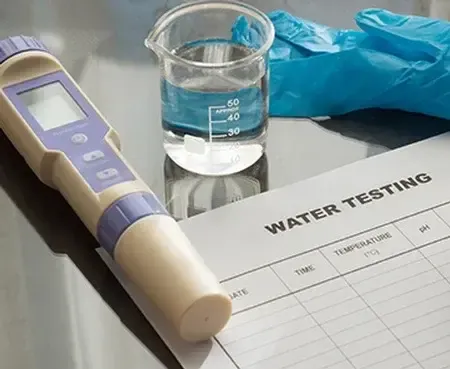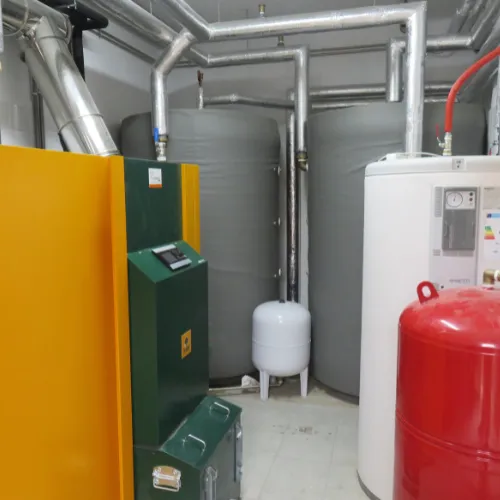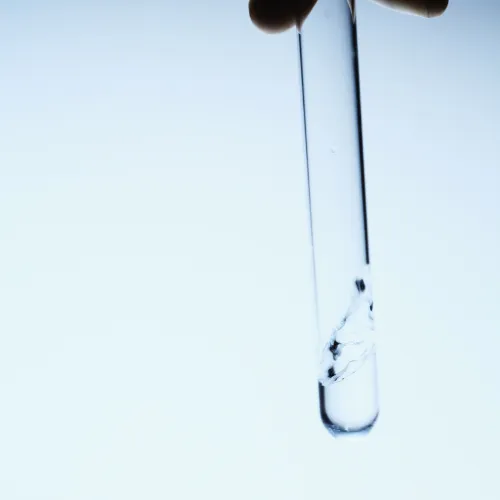
Total Solids in Water Testing
Ensure your water quality is within safe, compliant parameters with accurate testing for TDS (Total Dissolved Solids) and TSS (Total Suspended Solids).

Ensure your water quality is within safe, compliant parameters with accurate testing for TDS (Total Dissolved Solids) and TSS (Total Suspended Solids).
Testing for Total Solids (TDS and TSS) is essential for assessing the overall purity and quality of your water. These measurements are critical in a variety of settings, from industrial operations to municipal water systems, to ensure water remains clean and safe for both human consumption and environmental standards.
TDS measures the concentration of dissolved minerals, salts, and metals, which can affect water taste, corrosion, and scaling in plumbing systems.
TSS evaluates the amount of particulate matter suspended in the water, which can cause cloudiness and interfere with filtration systems.
High levels of TDS and TSS can lead to corrosion of pipes, reduced efficiency of water treatment systems, and health risks when consumed. Testing helps identify sources of contamination and maintain water quality.
In Ontario, several municipal guidelines and industry standards dictate acceptable limits for both TDS and TSS, particularly for facilities serving food, beverages, and healthcare systems. Routine monitoring of total solids is necessary to meet compliance standards and ensure safe operations.

The presence of Total Dissolved Solids (TDS) and Total Suspended Solids (TSS) can significantly affect the performance and safety of water systems.
TDS refers to the dissolved ions in water such as calcium, magnesium, sodium, sulfate, and bicarbonates, which can impact taste and corrosion.
TSS, on the other hand, refers to solid particles suspended in the water that cause turbidity and may clog filtration systems or interfere with disinfection processes.
📉 Risks of Unmonitored TDS & TSS:
- Corrosion and scaling of pipes, equipment, and boilers
- Clogged filtration systems leading to poor water quality
- Taste and odor issues, which can deter consumers
- Poor aesthetic quality—cloudy water can affect consumer confidence
Routine testing provides valuable insights, helping businesses take preventive measures before the effects of high solids levels become noticeable.
Industrial applications, such as boiler systems, cooling towers, and manufacturing processes, rely on water with controlled levels of TDS and TSS to maintain optimal function.
Boiler systems: High TDS levels can lead to scaling, damaging pipes and equipment, and reducing the boiler’s efficiency.
Cooling towers: Excess TSS can impair the effectiveness of water cooling and lead to corrosion of heat exchange surfaces.
🔧 By monitoring both TDS and TSS levels, companies can implement water treatment solutions to reduce scale buildup, improve operational efficiency, and extend the lifespan of equipment.
We provide certified testing for TDS and TSS levels, coupled with expert recommendations for improving water quality.


Certain industries, including food processing, pharmaceuticals, and municipal water supplies, are regulated by stringent standards for TDS and TSS.
For example:
- Municipal water systems must meet strict limits for TDS as outlined in Ontario Regulation 170/03, ensuring that drinking water is safe and aesthetically pleasing for the public.
- Food and beverage industries follow specific limits on TDS to maintain product consistency and quality.
📋 We help you stay compliant by providing regular TDS and TSS testing, ensuring your systems meet all applicable municipal codes and industry regulations.
Serving across Toronto, Mississauga, Brampton, London, Kitchener, Niagara, St. Catharines, Guelph, Waterloo, Collingwood, Barrie, Wasaga Beach, Midland, Huntsville, Gravenhurst, Minden, Oshawa, Peterborough, Kingston, Ottawa, Scarborough, Markham, Richmond Hill, Vaughan, Burlington, Etobicoke, Pickering, Ajax, Whitby, Caledon, Milton, Hamilton, Oakville and the surrounding areas.